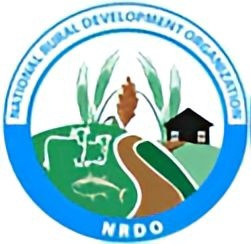


In today's interconnected world, ensuring food security remains a paramount challenge for nations, communities, and individuals alike. Food security is more than just having enough food to eat—it encompasses access to safe, nutritious, and affordable food that meets dietary needs and cultural preferences. AS one of our activity, we'll explore the complexities of food security, the challenges we face, and the innovative solutions being implemented by NRDO to address them.
BRIEF ABOUT FOOD SECURITY
At its core, food security is about ensuring that all people, at all times, have physical, social, and economic access to sufficient, safe, and nutritious food to meet their dietary needs and food preferences for an active and healthy life. It is influenced by various factors, including agricultural productivity, food distribution systems, economic stability, environmental sustainability, and social equity.
CHALLENGES TO FOOD SECURITY IN SOUTH SUDAN
Despite significant advancements in agriculture and food production, food insecurity remains a pressing global issue. Some of the key challenges to food security include:
1. Climate Change: Erratic weather patterns, extreme temperatures, and natural disasters associated with climate change pose significant risks to agricultural productivity and food supply.
2. Resource Scarcity: Limited access to land, water, and other essential resources, exacerbated by population growth and urbanization, can constrain agricultural production and food availability.
3. Poverty and Inequality: Socioeconomic factors, such as poverty, unemployment, income inequality, and lack of social protection, can limit people's access to food and exacerbate food insecurity.
4. Conflict and Instability: Armed conflict, political instability, and social unrest disrupt food production, distribution networks, and access to food, leading to food shortages and humanitarian crises.
5. Food Waste and Loss: Significant amounts of food are lost or wasted at various stages of the food supply chain, from farm to fork, contributing to inefficiencies and reducing overall food availability.
NRDO INVOLVEMENT TO IMPROVING FOOD SECURITY IN SOUTH SUDAN
Addressing food security requires a multifaceted approach that integrates agricultural development, economic empowerment, social protection, environmental sustainability, and policy reforms. Some innovative solutions being implemented by NRDO to promote food security include:
1. Sustainable Agriculture: Investing in sustainable farming practices, such as agroecology, conservation agriculture, and organic farming, can enhance agricultural productivity, resilience, and environmental sustainability.
2. Technological Innovation: Harnessing technological advancements, such as precision agriculture, biotechnology, and digital platforms, can improve crop yields, resource efficiency, and market access for farmers.
3. Social Safety Nets: Implementing social protection programs, such as cash transfers, food vouchers, and school feeding programs, can improve access to food and nutrition for vulnerable populations.
4. Community Empowerment: Empowering communities through capacity building, education, and local governance initiatives can enhance food sovereignty, resilience, and self-reliance.
5. Policy Reform: Enacting policies that promote inclusive economic growth, equitable access to resources, and sustainable food systems can create an enabling environment for food security and nutrition.
CONCLUSION
Ensuring food security is a complex and multifaceted challenge that requires collective action and collaboration at local, national, and global levels. By addressing the root causes of food insecurity, promoting sustainable and equitable food systems, and empowering communities to become agents of change, we can build a world where everyone has access to safe, nutritious, and affordable food, leaving no one behind.
Together, let's work towards a future where food security is a reality for all.
National Rural Organization

